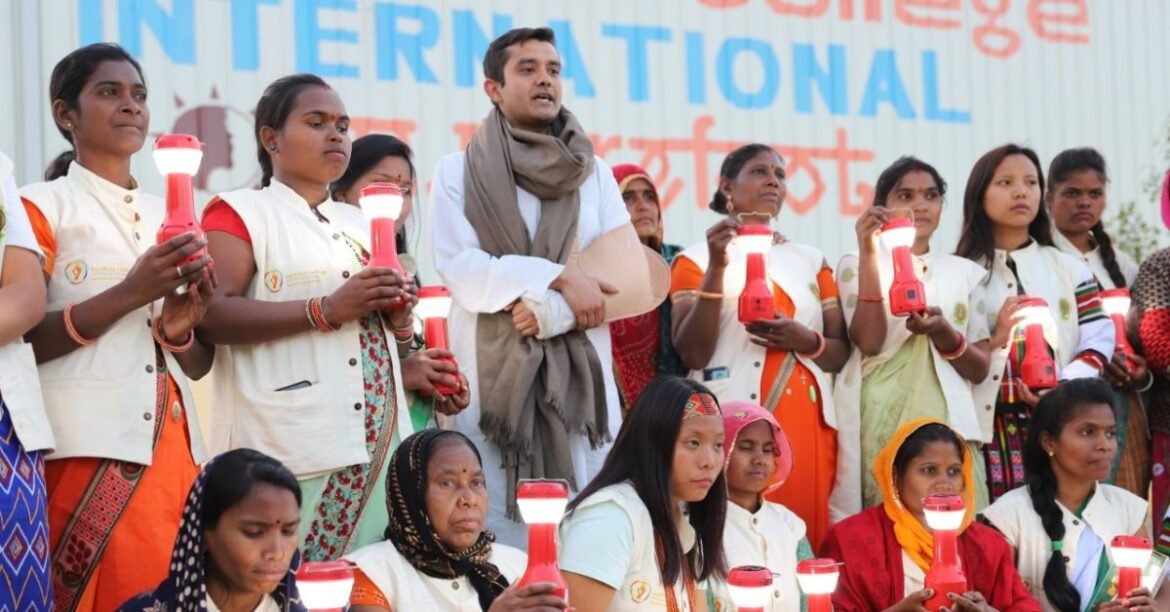Table of Contents
Surrounded by towering mountains in the Nichlagarh panchayat of Rajasthan, Thavri Devi lived much of her life without electricity. Her surroundings were defined by mud huts and rugged, unpaved paths winding through her village.
Married into a family dependent on her husband’s wage as a construction labourer, Thavri felt trapped in a relentless cycle of poverty. Pulled out of school after Class 5, her daily life revolved around household chores and tending to sheep and goats.
But change was on the horizon. A spark of hope ignited when she was introduced to a transformative opportunity – a five-month solar engineering training programme in Harmada. The village needed women for this initiative, and her fellow residents suggested her name.
Thavri’s family was hesitant, but her perseverance convinced them. “Women in our community never went out without a veil, and I had never travelled even to the nearest urban area alone. As I departed, the entire village gathered, teary-eyed. No woman had ever set out alone on such a journey,” she recalls.
Her trip to Kishangarh, marked by her first train ride, was both thrilling and intimidating. “It was an entirely new experience — I felt the journey was endless,” she says.
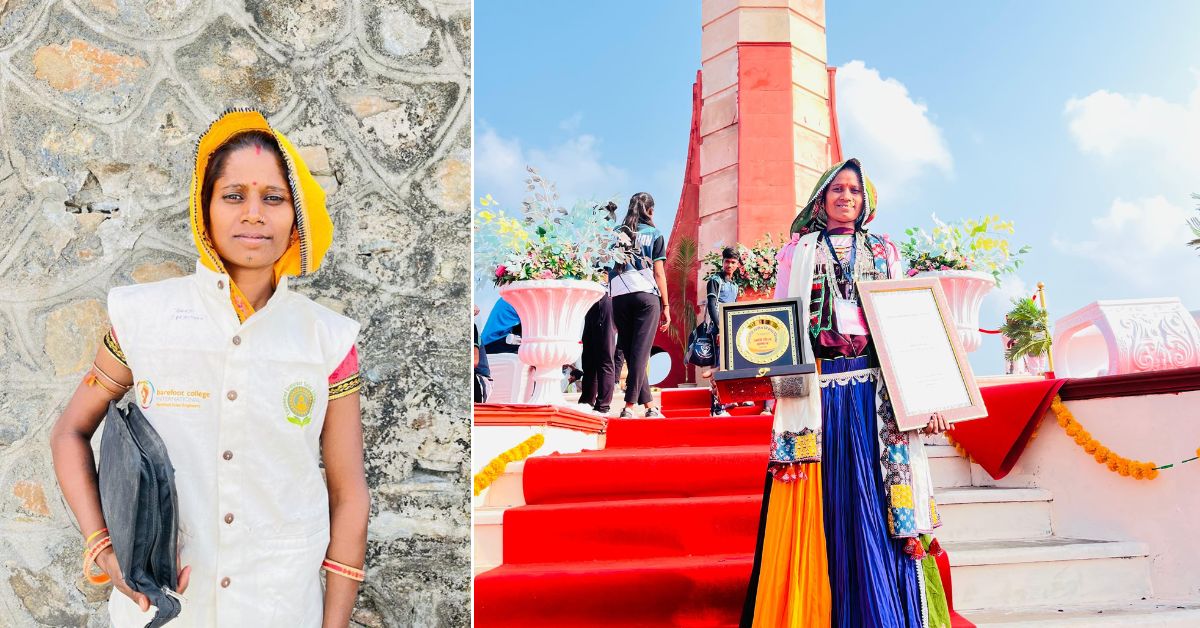
Guided by her trainers, Thavri mastered the necessary skills for solar installations and fieldwork. When she returned to her village, she was welcomed with elation, but more than just a homecoming, it was a symbolic shift. “We have lived in darkness for years, but now, I wanted to bring light to our lives,” she shares.
Today, Thavri proudly holds the title of solar engineer, earning Rs 5,700 per month. “I’ve been able to bring power to our village. My family, especially my children, beam with pride,” she adds.
Thavri’s impactful work has earned her the esteemed Adi Sewa Gaurav Samman award from the President of India and the Tribal Talent Award from Durga Das, Minister of State in the Ministry of Tribal Affairs.
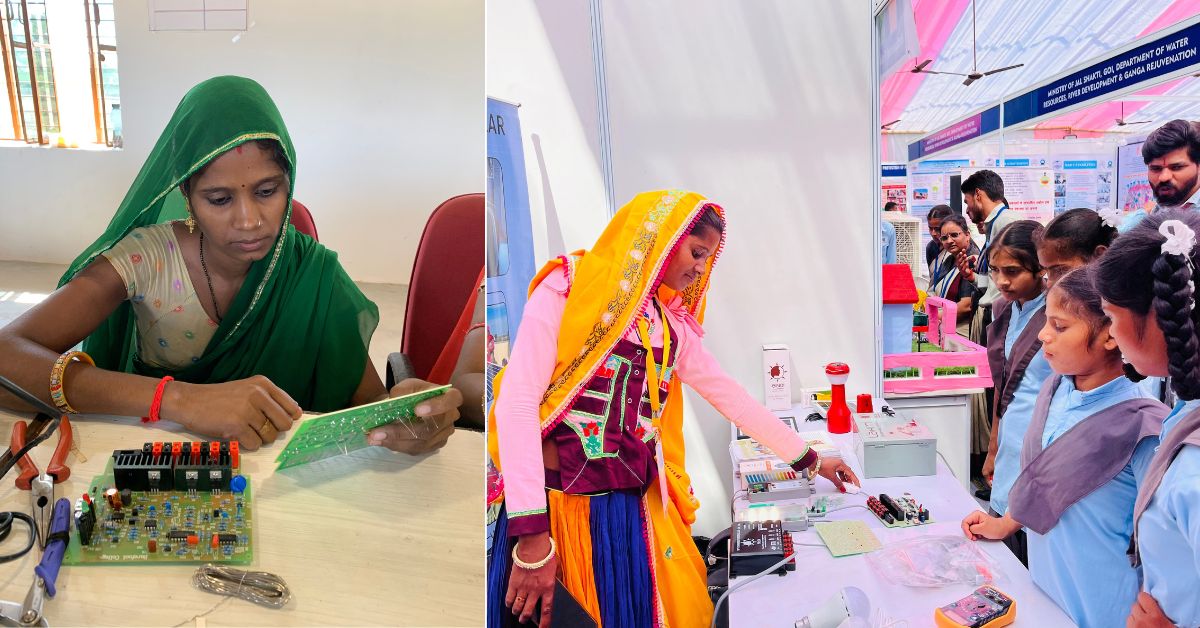
Like Thavri, more than 300 rural women across 10 states, including Jharkhand, Rajasthan, West Bengal, Mizoram, and Nagaland, have risen as skilled solar engineers and entrepreneurs, transforming their communities with light and livelihood. They single-handedly repair all solar panels in their villages.
Behind this transformation is Harsh Tiwari, director of EMPBindi International, who is leading the organisation’s initiatives to empower marginalised communities, particularly women, across the country.
Ligting the way
Harsh’s path initially mirrored that of many Indian youths: an electrical engineering degree followed by work in the corporate world. However, it was during a fellowship with the State Bank of India that he found himself immersed in rural India, where he recognised a glaring gap between urban and rural exposure and opportunities.
This experience became the catalyst for his shift toward using technical education to drive grassroots development. The realisation that sustainable energy could be the linchpin for transforming rural development led Harsh to focus on solar energy.
Recognising the potential of women in rural communities, he decided to place them at the centre of this energy revolution. “I knew that with proper training, women could effectively manage solar installations,” he says.
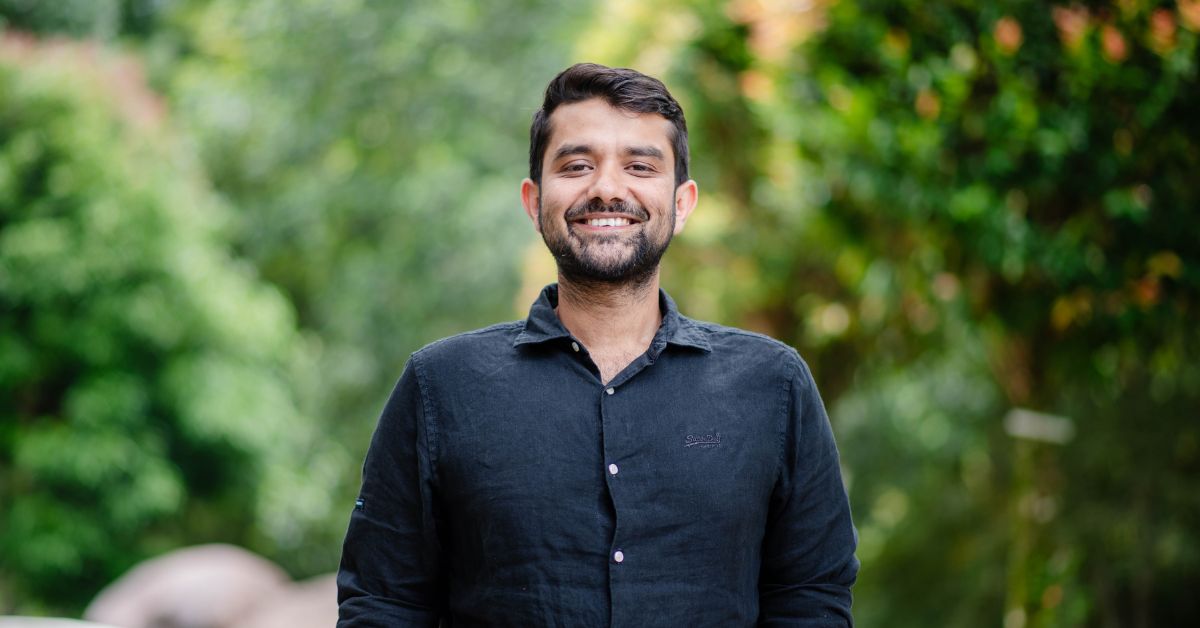
Thus began a robust training programme aimed at turning rural women into proficient solar engineers. The women selected for the programme often hail from areas with intermittent or no electricity. The training spans five months and covers various technical skills necessary for solar engineering, such as soldering, wiring, battery setup, fault-finding, installation, and upgrading.
“The programme is designed to demystify technology that was traditionally considered complex and male-dominated. The training simplifies what would typically be a multi-year engineering course into practical, hands-on learning,” says Harsh.
During the course, trainees build decentralised home lighting systems about 15 to 20 times, gaining comprehensive knowledge and experience in running these systems. Once trained, these women hold a respected position as solar engineers, which empowers them and changes community perceptions.
Post-training, women are set up to maintain and operate solar solutions in their villages. Small labs are established where they can conduct repairs and first-level check-ups. Upon completion, trainees earn a certificate from the Ministry of Renewable Energy, recognising them as qualified to maintain and repair solar home lighting systems.
Go-to solar experts in every village
This hands-on responsibility doesn’t end with training. Women continue their work on the ground, ensuring the smooth functioning of decentralised renewable energy (DRE) systems within their communities. Harsh explains, “These systems form the backbone of energy access for rural households. Women in this role are usually less mobile and work locally to ensure the energy infrastructure runs smoothly.”
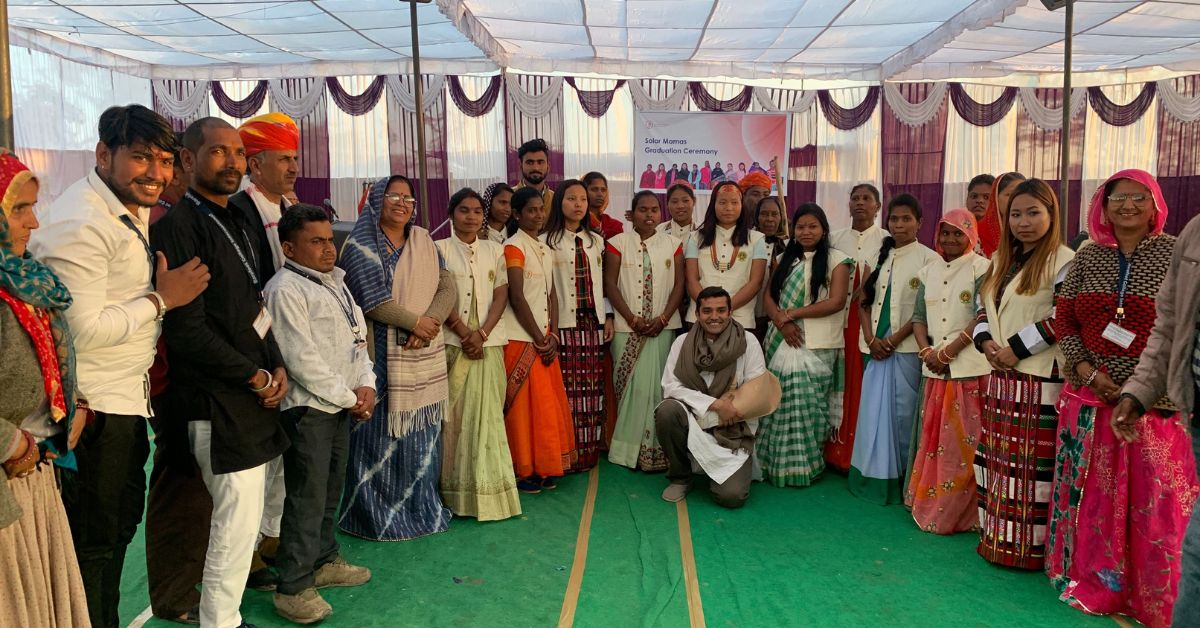
While solar engineers work within their own villages to maintain energy systems, a second group — known as solar sakhis — take on a more outward-facing and entrepreneurial role.
Together, they form a hub-and-spoke model: solar engineers act as the stable ‘hub’, ensuring village-level energy infrastructure runs smoothly, while solar sakhis serve as the ‘spokes’, expanding access to technology-based livelihood solutions in surrounding areas. Both groups are trained in solar technology, and the programme is designed with flexibility, enabling women to transition between roles based on their mobility, interests, and aspirations.
“Once the basic energy needs of the village are met, there is a growing demand for larger energy-based solutions that support livelihoods, such as solar-powered equipment for agriculture, small-scale industries, or other productive uses. EMPBindi International trains solar sakhis to address these needs. Their work involves travelling to different areas, identifying livelihood needs, and promoting customised solar solutions. Alongside technical training, they are also trained in entrepreneurship and customer engagement,” he explains.
So, if anything goes wrong with solar setups in villages, these rural women are the go-to people.
Redefining gender roles
Initially, the initiative faced hurdles in convincing families to allow women to participate in a five-month training programme. Harsh recounts, “It took a lot of community engagement and assurance that we would be responsible for them during the training.”
These women, now solar engineers, not only provide their families with a stable income but also bring sustainable solutions to their villages. With around 300 women trained, the programme has powered 3,000 households, schools, and primary health centres as well. Additionally, EMPBindi International has distributed more than 6,000 solar dryers, microgrids, solar torches and cookstoves to rural households.
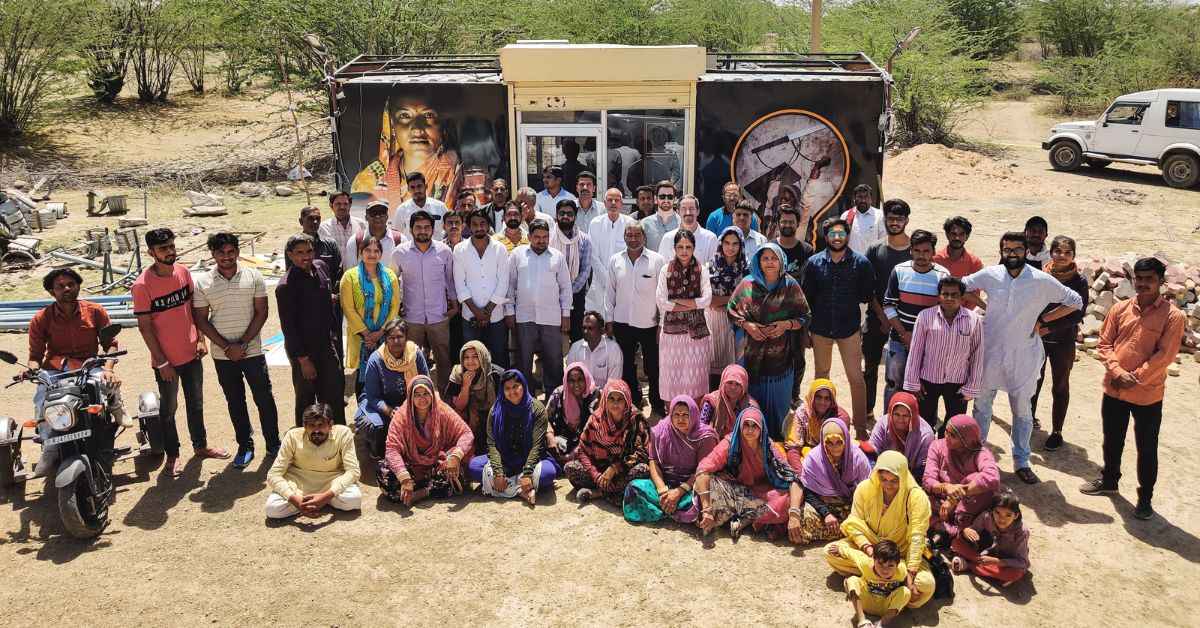
The impact, Harsh says, has been profound. Women who were once confined to traditional roles began returning to their communities with newfound skills and confidence. Harsh vividly describes a moment that encapsulates this transformation: “During a community meeting of all-men panchayat officials, a newly trained solar engineer confidently placed a chair at the centre and declared, ‘I am a solar engineer now, and I got this right,’” he smiles.
By training women as solar engineers and sakhis, Harsh is not just bringing electricity to remote villages; he is redefining gender roles and igniting a broader social change.
“There’s a definite change in the mindset of children, the way they look at their mothers. I am glad that I am able to give back to the community for all the privilege, all the education, all the support that I got,” he says.
Looking ahead, Harsh aims to scale these efforts sustainably, envisioning a future where rural women are at the forefront of technological adoption and rural communities thrive with renewable energy as their backbone. “The goal is not just to provide light but to illuminate all facets of life,” he affirms.
Edited by Khushi Arora; All images courtesy EMPBindi International

